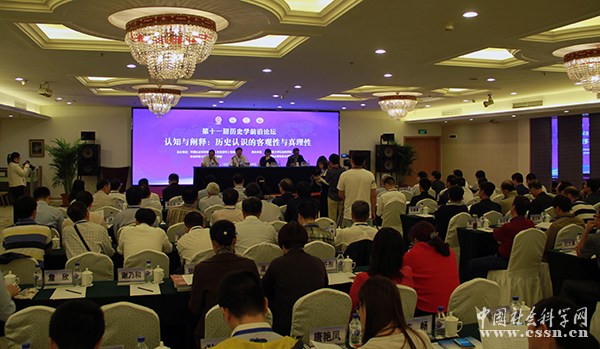Understanding, interpreting history from objective perspectives

From Sept. 15 to 16, the 11th Forum on Historical Frontiers, themed “Cognition and Interpretation: the Objectivity and Truth of Historical Understanding,” was held in Changchun, Jilin Province. It was co-hosted by the Editorial Department of Historical Research at Social Sciences in China Press (SSCP) and the School of History and Culture at Northeast Normal University.
The Executive Deputy Editor-in-Chief of SSCP Wang Limin, delivered the keynote speech on behalf of CASS Vice-President Zhang Jiang. Deputy Editor-in-Chief Sun Hui and Vice-President of Northeast Normal University Han Dongyu attended the opening ceremony of the forum and also presented remarks. More than 80 experts and scholars from over 40 research institutes and universities nationwide gathered for discussion.
Wang said that in the new context brought by omni-media era, the mode of academic production is undergoing profound changes. In recent years, SSCP has been rethinking its approach to publishing journals and newspapers. In addition to developing disciplines and refining its discourse system, it has been cooperating with domestic academic journals and institutes and has set a series of academic agendas that are instructive, theoretical and distinctive.
Li Jinzheng, a history professor at Nankai University, said that the internal and external interaction of historical research methods is quite important. “To gain the power of international academic discourse and to establish academic confidence, both international (external) and domestic (internal) views are needed. The former means competing for international discourse power by means of excellent academic performance and achievement while the latter means seeking domestic historical resources and establish a set of academic rules that are acknowledged by international academia.”
“Human understanding of history, while limited by both subjective and objective historical conditions, can be improved as human society advances, so that they are able to gradually access the truth of history and enrich their understanding of the deep structure embedded in human history.” said Zhou Yumin, professor from College of Humanities and Communications at Shanghai Normal University. He said what makes history different from other disciplines is that historical research can only grasp history in the context of historical trends.
Other scholars also explored themes such as philology and archaeology, which are considered crucial means of obtaining reliable historical materials and offering fresh historical views.
